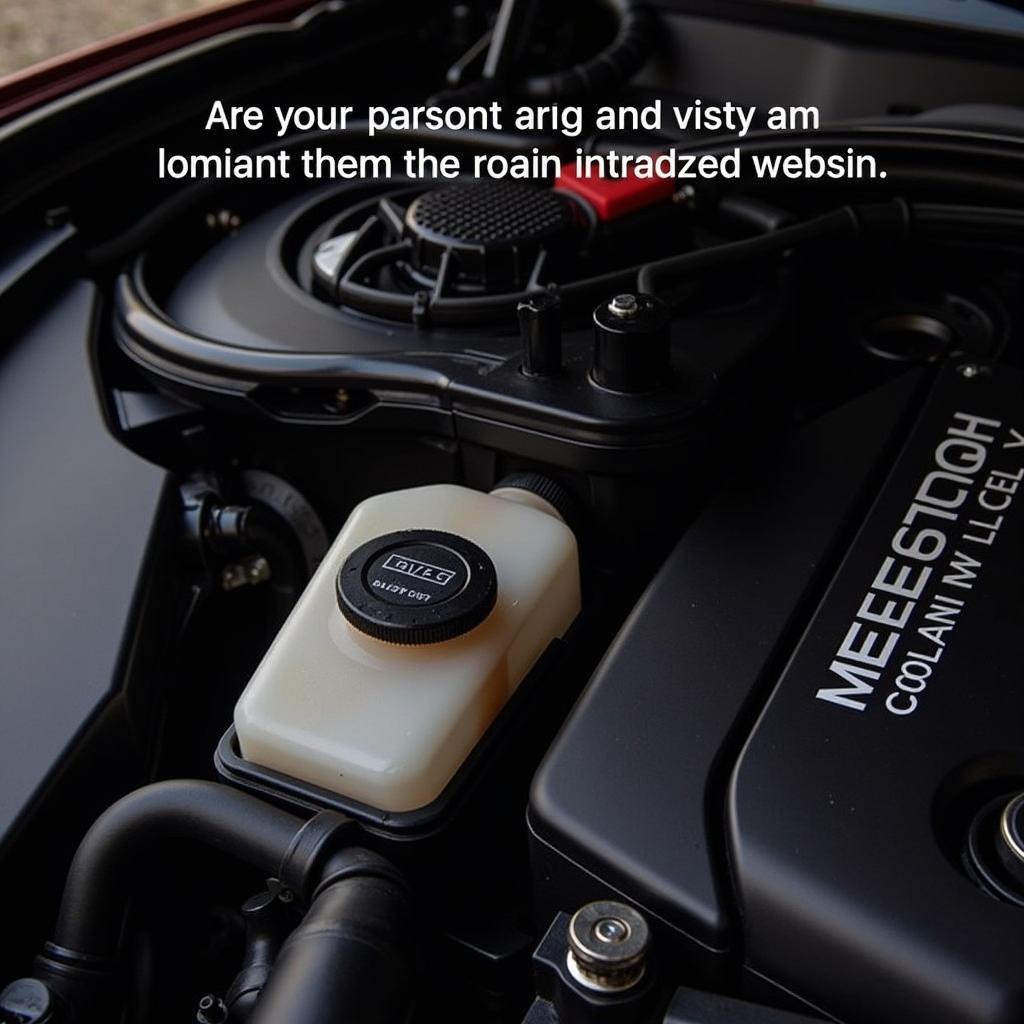A screeching sound coming from your BMW’s engine can be alarming. This article will guide you through the common causes of a bmw screeching sound engine, how to diagnose the issue, and the best solutions to get your BMW back on the road smoothly and quietly.
Common Causes of a BMW Screeching Sound Engine
Several issues can lead to a screeching sound emanating from your BMW’s engine. Understanding these potential problems can help you narrow down the cause and find the right solution. Some of the most common culprits include:
- Belt Issues: A worn, cracked, or loose serpentine belt is often the primary cause of a screeching sound. The serpentine belt drives various engine components, including the alternator, power steering pump, and air conditioning compressor.
- Pulley Problems: Worn or seized pulleys can also cause a screeching noise. These pulleys work in conjunction with the serpentine belt, and any malfunction can lead to friction and noise.
- Tensioner Issues: The belt tensioner maintains proper tension on the serpentine belt. A faulty tensioner can cause the belt to slip or squeal.
- Water Pump Problems: A failing water pump can produce a screeching or whining sound, especially when the engine is cold. This is often due to worn bearings within the water pump.
- Alternator Issues: A failing alternator can also produce a screeching sound, although this is less common than belt or pulley problems.
Diagnosing the Screeching Sound
Pinpointing the source of the screeching sound requires careful listening and inspection. Here’s a step-by-step guide:
- Locate the Sound: Try to determine where the sound is coming from. Is it from the front, sides, or top of the engine?
- Inspect the Belts: Visually inspect the serpentine belt for cracks, wear, or looseness.
- Check the Pulleys: Check the pulleys for any signs of wear, damage, or seizing. Rotate each pulley by hand to feel for any resistance or roughness.
- Examine the Tensioner: Inspect the belt tensioner for proper operation and movement.
- Consider the Water Pump: If the sound is more prominent when the engine is cold, the water pump could be the culprit.
- Listen to the Alternator: If the sound changes with engine RPM, the alternator might be the issue.
Solutions for a BMW Screeching Sound Engine
Once you’ve diagnosed the problem, you can take the appropriate steps to fix it. Here are the common solutions:
- Belt Replacement: If the serpentine belt is worn, cracked, or loose, replace it with a new one.
- Pulley Replacement: Replace any worn or damaged pulleys.
- Tensioner Replacement: If the tensioner is faulty, replace it.
- Water Pump Replacement: A failing water pump requires replacement.
- Alternator Replacement: If the alternator is the issue, replace it.
Why is my BMW making a high-pitched screeching noise?
A high-pitched screeching noise often indicates a problem with the serpentine belt system, such as a worn belt, a failing tensioner, or a seized pulley.
What does a bad water pump sound like on a BMW?
A bad water pump on a BMW can produce a screeching or whining sound, particularly when the engine is cold.
How can I tell if my alternator is causing the screeching sound?
If the screeching sound changes with engine RPM or if you experience electrical issues, the alternator might be the problem.
Conclusion
Addressing a bmw screeching sound engine promptly is crucial to prevent further damage and ensure your BMW’s optimal performance. By understanding the common causes, diagnostic procedures, and solutions outlined in this article, you can effectively address the issue and enjoy a quiet, smooth ride. Similar to issues discussed in our articles on bmw 335d exhaust sound, addressing unusual engine noises early on can prevent more costly repairs down the line.
FAQ
- Can I drive my BMW with a screeching sound? It’s best to avoid driving with a screeching sound, as it can indicate a serious problem.
- How much does it cost to fix a screeching sound in a BMW? The cost depends on the specific cause and can range from a relatively inexpensive belt replacement to a more costly water pump or alternator replacement. This also relates to the distinct engine sound described in 2005 bmw 760i engine sound.
- Can I fix a screeching sound myself? If you have mechanical experience, you may be able to replace the belt or tensioner yourself. However, more complex repairs are best left to a qualified mechanic.
- How can I prevent screeching sounds in my BMW? Regular maintenance, including belt inspections and replacements, can help prevent screeching sounds. The starting issues described in 2005 bmw x5 4.4 i screeching sound on start up can be avoided with preventative maintenance.
- What if the screeching sound continues after replacing the belt? If the sound persists after a belt replacement, there may be a problem with a pulley, tensioner, or other component.
- Is a screeching sound always a serious problem? While a screeching sound often indicates a problem that needs attention, it’s not always a major issue. However, it’s always best to have it checked out.
- Can a screeching sound be related to other engine problems? Yes, a screeching sound can sometimes be a symptom of a larger engine problem.
For expert assistance with your BMW’s screeching sound, contact us via Whatsapp: +1 (641) 206-8880, Email: [email protected], or visit our workshop at 276 Reock St, City of Orange, NJ 07050, United States. We offer 24/7 customer support.


